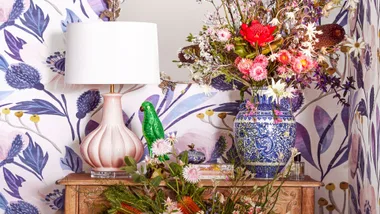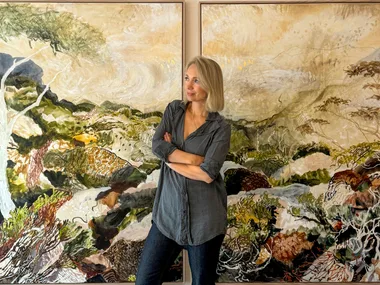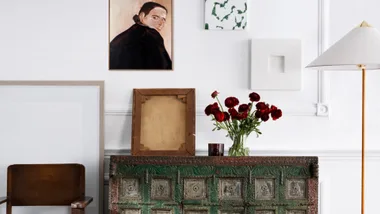The drive to create was there from the start for Emma Fuss. “Unusually for a farm kid, I was quite indoorsy,” says the artist. “I was always making something with clay, painting or sewing.” Her love for the outdoors came later, after a career in graphic design, and having her three children, Jim, 14, Lachie, 13, and Elsie, 8, with her husband, Simon. “I’ve got Elsie to thank, actually. She must have been about 18 months old when she was having these lovely long day sleeps, so I started painting.”
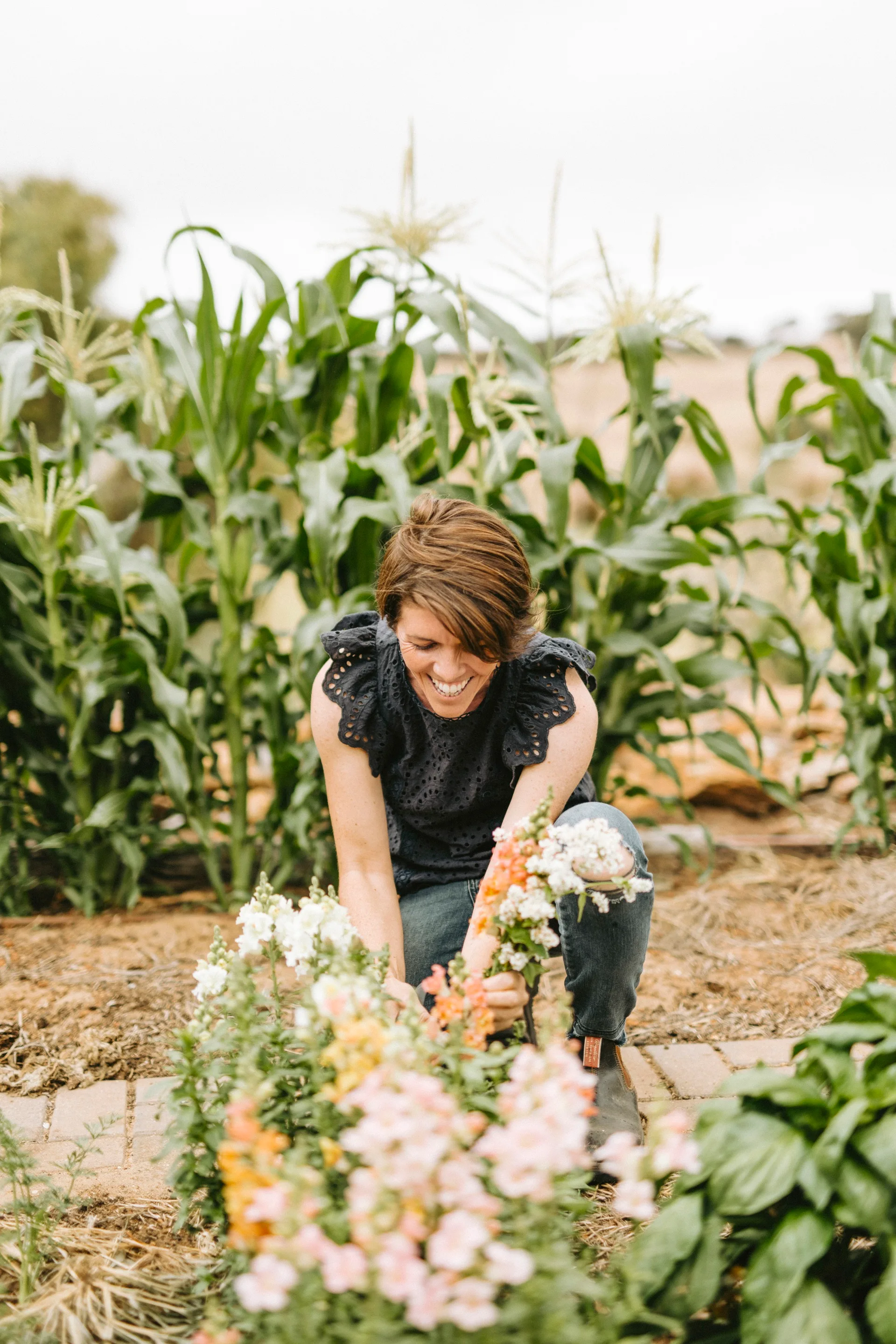
At a glance
Who: Artist Emma Fuss.
What she does: Works primarily in oils, creating striking still-lifes and portraiture from her home on the wild, remote Eyre Peninsula.
Where: Emma’s home studio is in Boston, South Australia.
Why she does it: “When you get those moments where you’re in the flow of making something, I don’t think there’s any better feeling than that.”
Visit: emmafuss.com.au, @emmafuss.
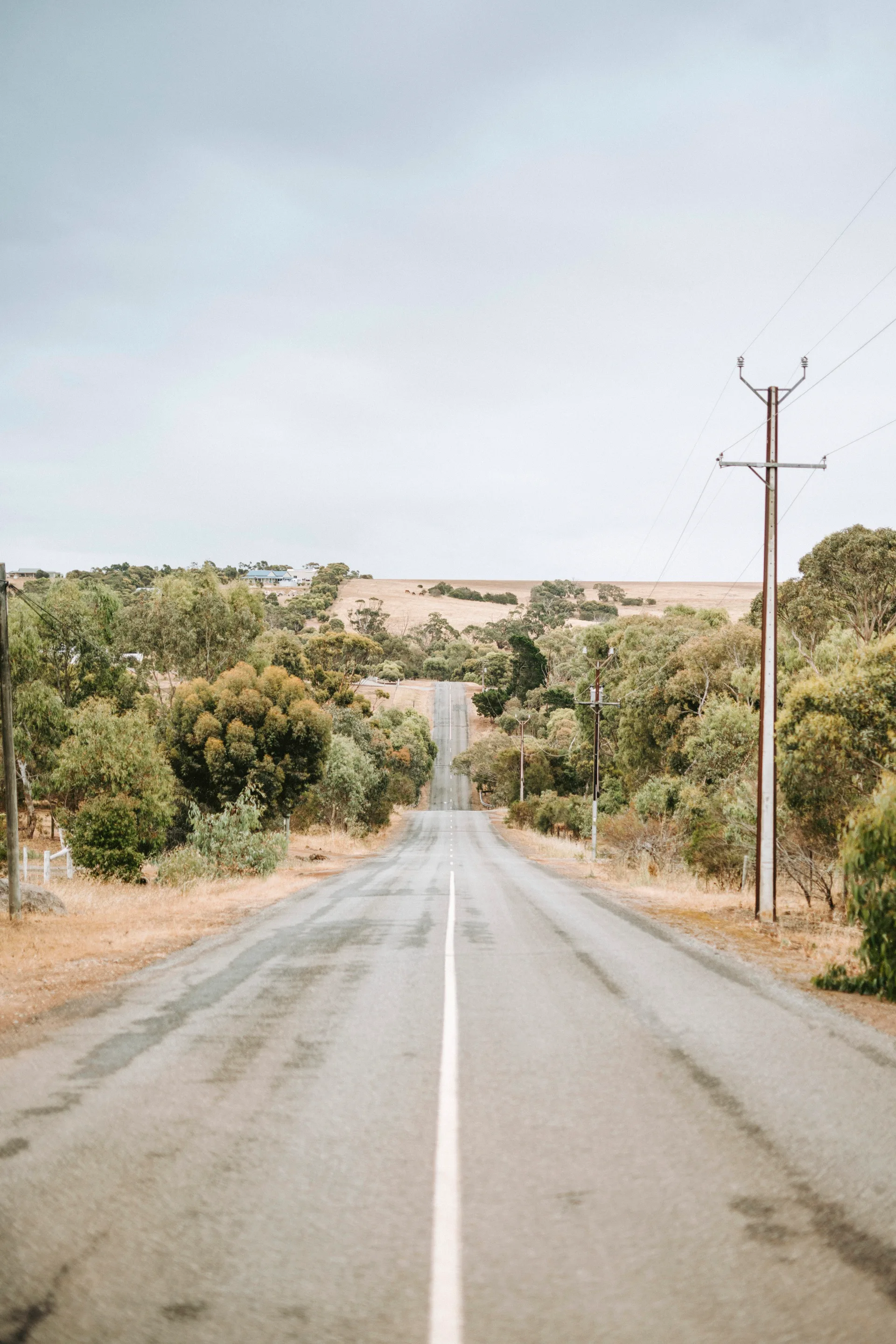
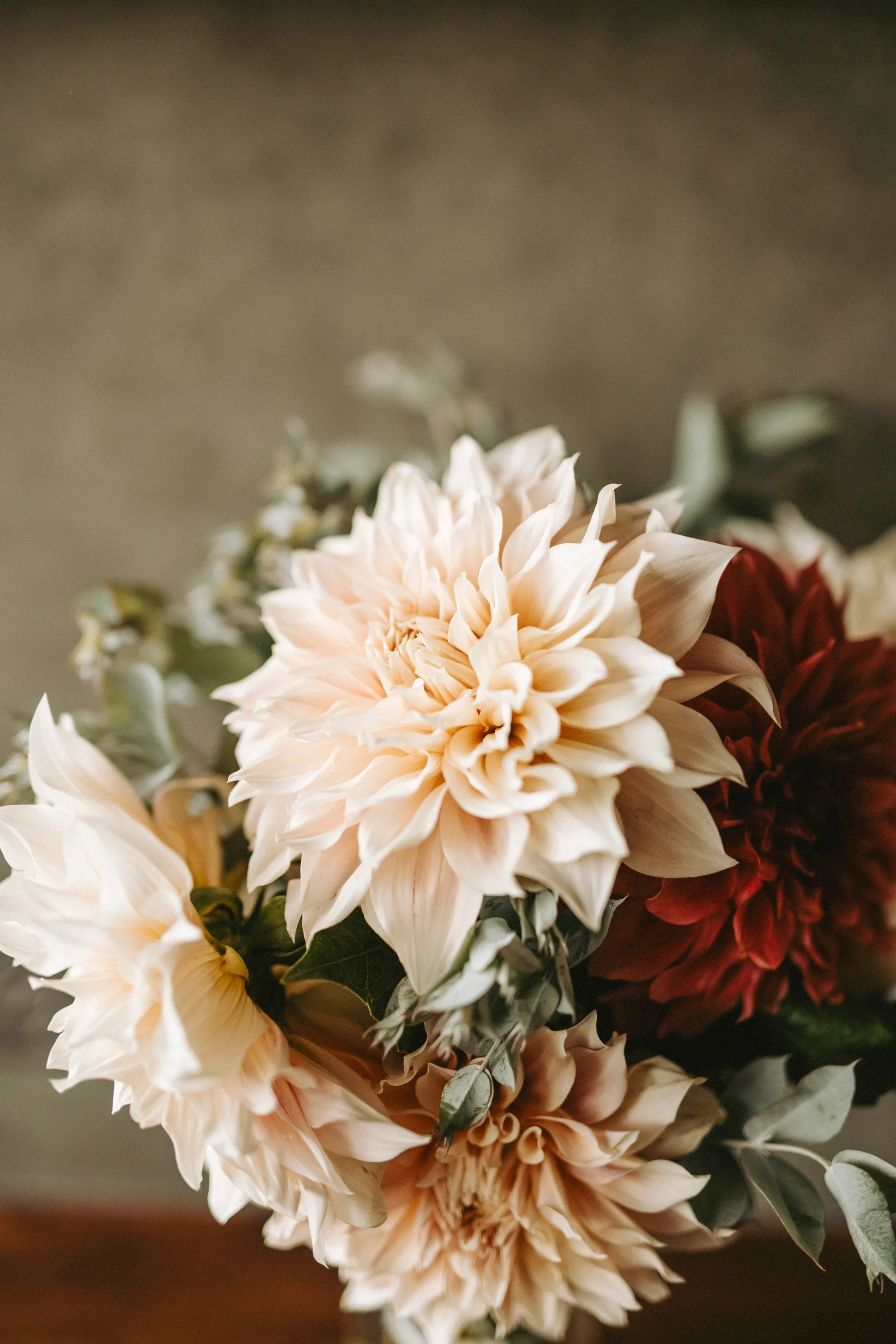
Flowers were instantly a favourite subject and the backyard was the perfect place to grow new material for still-life set-ups. “I did heaps of native plants in the beginning, then moved onto more cottage garden flowers. It’s made me think more seasonally,” says Emma. “For a while there I was obsessed with dahlias. They’re such big, showy, impressive flowers and lend themselves to being painted larger than life. They’re out in late summer.”

Whatever the season, Emma’s studio is a sanctuary. “My husband is a builder so he designed and built it. I needed a ‘making things’ space and he works for himself so he needed an office,” she explains. “One of the things he’s really passionate about is passive building design, so it’s always a lovely temperature in there. It has north-facing windows and the light is beautiful. We just have to walk across the deck to get to it. When I’m in there, I’m in work mode and when I come back into the house, I’m in family mode. That works really nicely for us.”
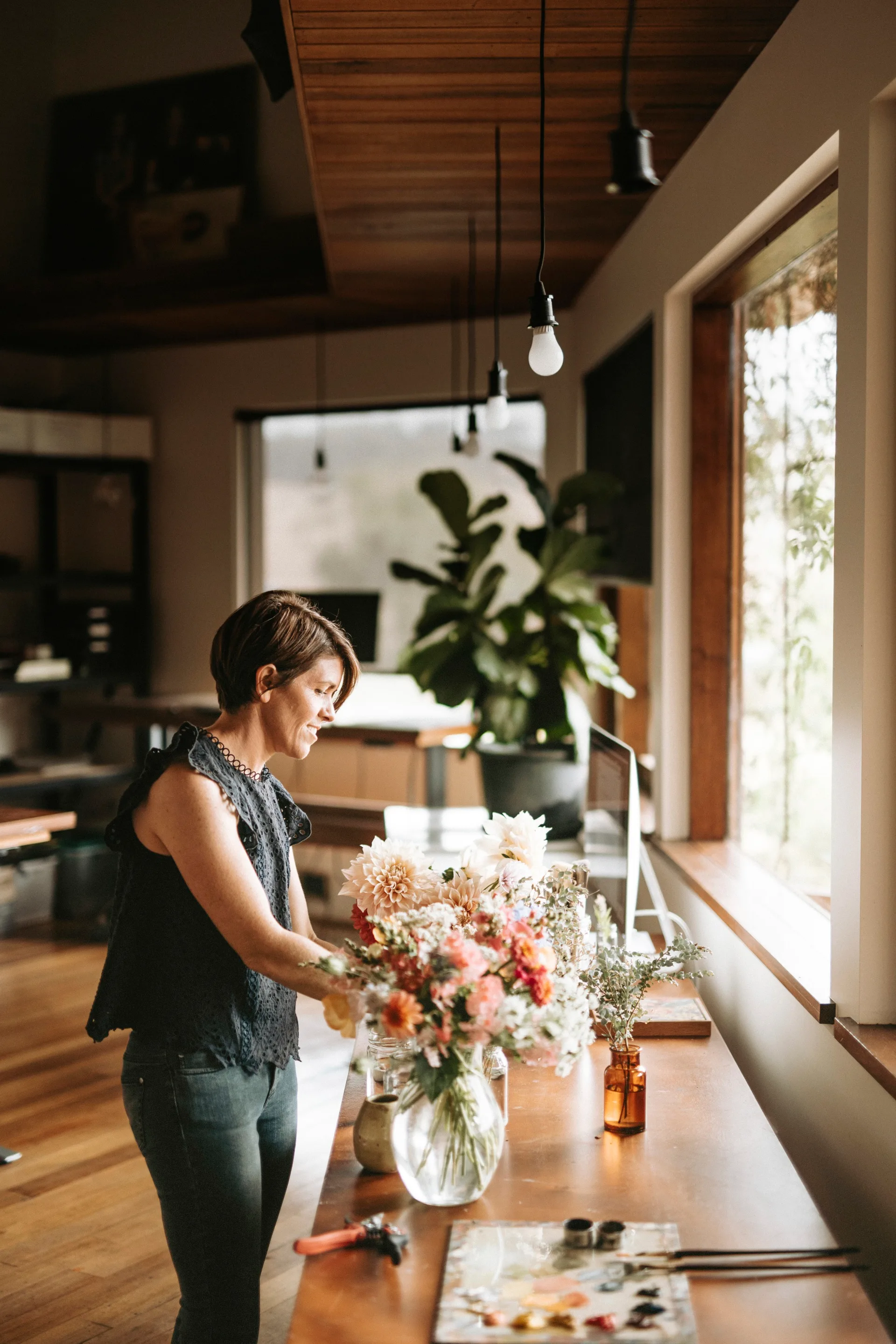
“I love working and teaching from home, with all my paints and my music playing.”
Emma
Now that the kids are all at school, Emma gets lots of quiet time in the studio. It might take a day to complete a smaller painting (about 40cm x 40cm) or longer for larger commissions.
They’re all done on primed wood panel. “With canvas you get a bit of bounce and there’s something about the texture that I’m not crazy about,” she says. As for paints, oil is Emma’s preference. “I started with acrylics and they drove me crazy. I thought oil paints would be tricky but as soon as I discovered them I thought, ‘Oh, this works.’”
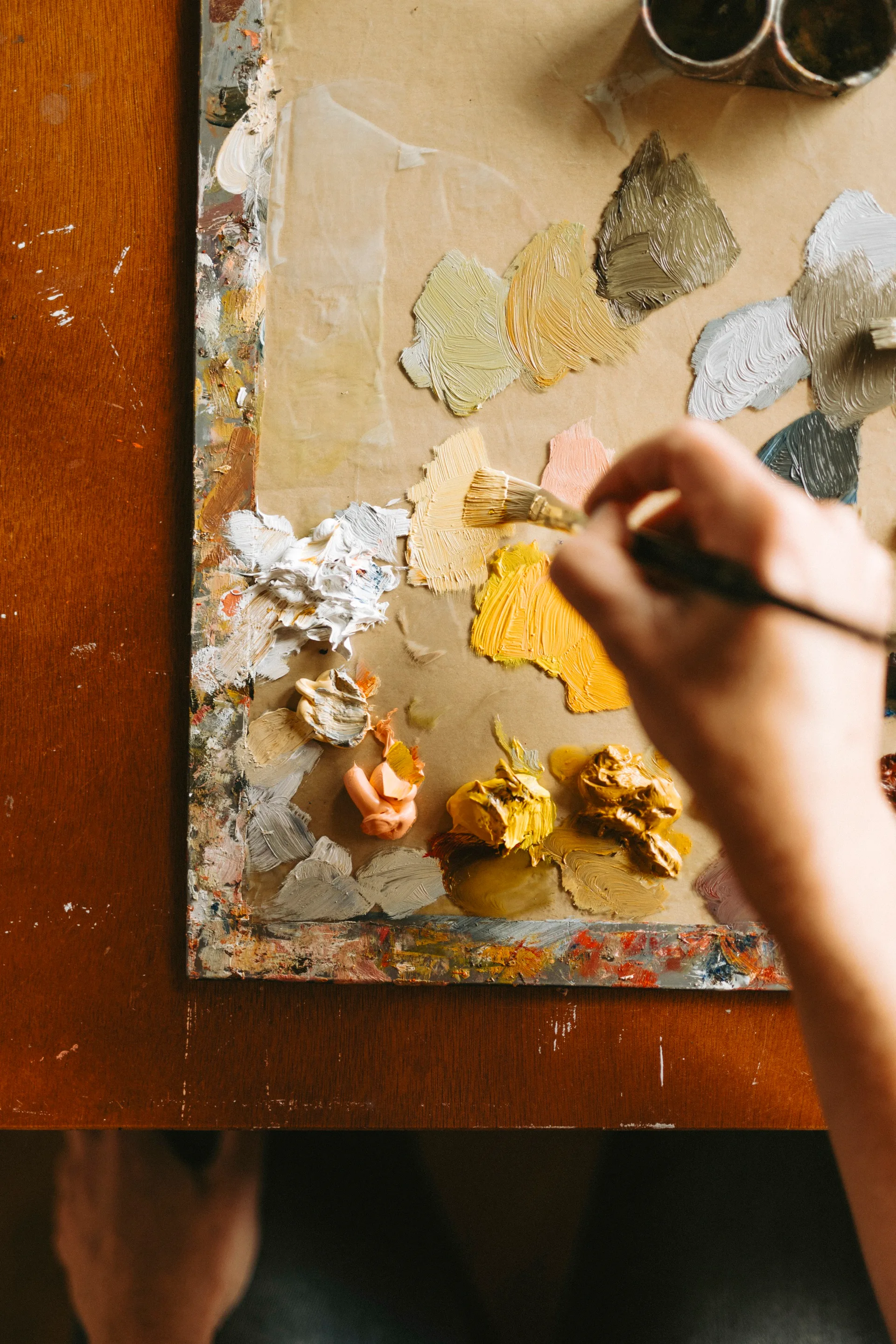
On days when she needs a break from the brushes, she’ll frame her paintings using a system Simon helped her set up. The best moments, though, are when Emma’s in a creative flow. “You don’t even realise you’re in them until you stop or get interrupted. Then you step back to look at your work and see, ‘Actually, that’s going really well.’”
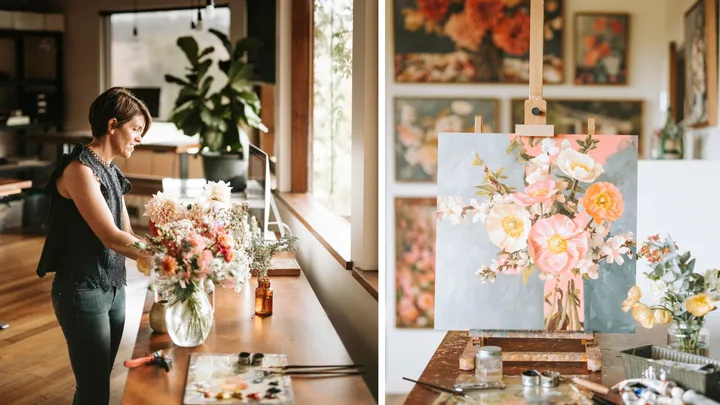 Photography: Christopher Morrison
Photography: Christopher Morrison
